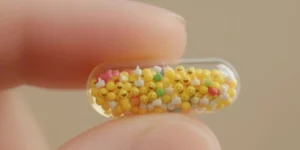Unseen Memories Shape Our Actions In Ways We Cannot Perceive
How does implicit memory influence our daily behaviors and decision-making without us being consciously aware of it? Our counsellors are here to help you today.
FREE ASSESSMENT082 747 3422Addiction Is Not a Thought Problem
Most people believe addiction is driven by poor decisions or a lack of insight. This belief feels logical because it assumes behaviour follows thought. In reality, addiction often bypasses conscious thinking altogether. People relapse despite understanding consequences, despite remembering pain, and despite wanting to stay sober. This disconnect creates enormous shame because it feels irrational. The truth is that addiction is not primarily a thinking problem. It is a learning and conditioning problem rooted in parts of the brain that act before conscious reasoning even has a chance to engage.
The Part of the Brain That Acts Before You Decide
Implicit memory operates beneath awareness and runs much of daily life. It controls habits, routines, emotional reactions, and physical responses without requiring conscious permission. You do not think about how to walk, type, or drive familiar routes because those actions live in implicit memory. Addiction uses the same system. Repeated substance use trains the brain to respond automatically to certain cues. Once these pathways are established, behaviour can activate before the person has time to reflect, negotiate, or intervene.
Why Your Body Remembers What Your Mind Wants to Forget
Many people in recovery are confused by how strongly their bodies react to triggers even when their minds are committed to change. Walking past a familiar bar, hearing certain music, feeling stress, or experiencing boredom can produce an immediate physical response. The heart rate shifts, tension rises, and craving appears without invitation. This happens because implicit memory stores emotional and sensory associations alongside behaviour. The body remembers the relief, escape, or stimulation long after the conscious mind has rejected it.
Triggers Are Not Weakness They Are Memory Pathways
Triggers are often framed as personal vulnerabilities or failures of self control. In reality, they are learned associations embedded in implicit memory. The brain has linked specific internal or external cues with substance use and relief. When those cues appear, the response activates automatically. This does not mean the person wants to use. It means their nervous system has learned a pattern that has not yet been replaced. Understanding this removes moral judgment and replaces it with clarity.
The Lie of Knowing Better
Insight is valuable, but it does not control implicit memory. Many people believe that once they understand addiction, behaviour should change. When it does not, they assume they are broken or dishonest. Knowing better does not stop conditioned responses any more than knowing how unhealthy sugar is stops cravings when stressed. Addiction does not respond to logic alone because it is not stored in the logical part of the brain. Expecting insight to override conditioning sets people up for frustration and self blame.
Why Certain Places People and Emotions Hijack Control
Implicit memory links substance use not just to substances, but to environments, relationships, and emotional states. Stress, loneliness, celebration, anger, or boredom can all activate the same learned response. Certain people or places carry emotional memory even if nothing is consciously remembered. This is why relapse can feel sudden and confusing. The trigger is often subtle, and the reaction happens before awareness catches up. Behaviour follows memory, not intention, in those moments.
Muscle Memory Is Not Just a Metaphor
People often describe relapse as happening automatically or without thinking. This is not an excuse or exaggeration. It is an accurate description of implicit memory in action. Just as muscles remember complex movements through repetition, the brain remembers behavioural sequences connected to relief. Reaching for alcohol or drugs can become as automatic as tying shoes. This does not mean the person lacks values or commitment. It means the behaviour has been deeply learned and requires deliberate retraining.
Why Early Recovery Feels Unsafe Even When Life Is Stable
Many people expect safety and calm once substances stop. Instead they experience restlessness, anxiety, or a constant sense of pull toward old behaviours. This happens because implicit memory remains active long after conscious decisions change. The brain is still scanning for familiar solutions to discomfort. Without substances, the nervous system feels exposed and reactive. This phase is temporary, but only if new patterns are practiced consistently rather than avoided or suppressed.
Relapse Starts in the Nervous System Not the Glass
Relapse is often framed as the moment someone drinks or uses. In reality it begins much earlier in the nervous system. Emotional dysregulation, avoidance, isolation, and unchecked triggers slowly activate implicit pathways. By the time substance use occurs, the process has already been unfolding beneath awareness. Recognising relapse as a process rather than a single act allows earlier intervention and reduces shame driven secrecy.
Why Avoidance Alone Does Not Work
Many people attempt to manage addiction by avoiding triggers. While avoidance can help temporarily, it does not retrain implicit memory. Life eventually presents stress, emotion, and reminders. When avoidance fails, the response returns. Recovery requires learning to tolerate and respond differently to triggers rather than hiding from them. Without new responses, implicit memory continues to dominate behaviour whenever pressure increases.
Rehabs in other cities of South Africa.How Treatment Actually Retrains the Brain
Effective treatment does more than educate. It creates repeated experiences that weaken old associations and build new ones. Therapy works through exposure, rehearsal, emotional regulation, and behavioural practice. Over time, new responses become more automatic. The brain learns that discomfort does not require escape through substances. This process is gradual and requires structure, repetition, and support. It cannot be rushed through insight alone.
Why Talking About Triggers Is Not Enough
Awareness of triggers is only the first step. Without practicing alternative responses, awareness changes very little. Implicit memory responds to repetition, not intention. Talking without action leaves old pathways intact. Recovery strengthens when people repeatedly experience triggers without using substances and survive the discomfort. Each experience weakens the old association and strengthens new conditioning.
What Real Recovery Changes Over Time
As new patterns repeat, implicit memory slowly adapts. Cravings become less intense and less frequent. Responses slow down enough for conscious choice to return. This does not happen evenly or quickly. Progress often feels boring and unremarkable. Over time, the brain stops defaulting to substances as a solution. Behaviour begins to align with values because the automatic system has changed, not because willpower has increased.
Why This Explains So Much Shame in Addiction
Many people carry deep shame because they acted against their values despite wanting change. Understanding implicit memory explains this gap without excusing harm. Behaviour driven by conditioning does not reflect character. Shame often keeps people stuck by discouraging honesty and support. When people understand why behaviour happened, they are more willing to stay engaged with recovery rather than hiding after setbacks.
The Difference Between Willpower and Conditioning
Willpower operates in the conscious mind and collapses under stress. Conditioning operates automatically and remains active during pressure. Recovery strengthens conditioning rather than relying on motivation. New habits become default responses over time. This is why structured routines, boundaries, and repetition matter more than resolve. The goal is not constant self control but building automatic stability.
What Families Misunderstand About Relapse
Families often interpret relapse as deception or choice. This belief damages trust and increases conflict. Understanding implicit memory helps families respond with clarity rather than blame. It shifts the focus from punishment to support and structure. Families cannot prevent relapse, but they can reduce shame and encourage earlier intervention by understanding how automatic these processes are.
Why Patience Matters More Than Motivation
Implicit memory changes slowly. Expecting rapid emotional transformation creates disappointment and risk. Patience allows the brain time to relearn safety without substances. Recovery succeeds through consistency rather than intensity. Staying present through discomfort is what weakens old patterns. Motivation fluctuates, but repetition retrains the system underneath it. This is why recovery is not about thinking better, but about living differently long enough for the brain to follow.

The Lie That Relapse “Just Happens” Relapse is treated like a plot twist, something that…

The Medication Nobody Wants to Talk About, Until It Saves Their Life For all the…

The 12 step alcohol and addiction recovery programmes often refer to “Insanity: doing the same thing over…